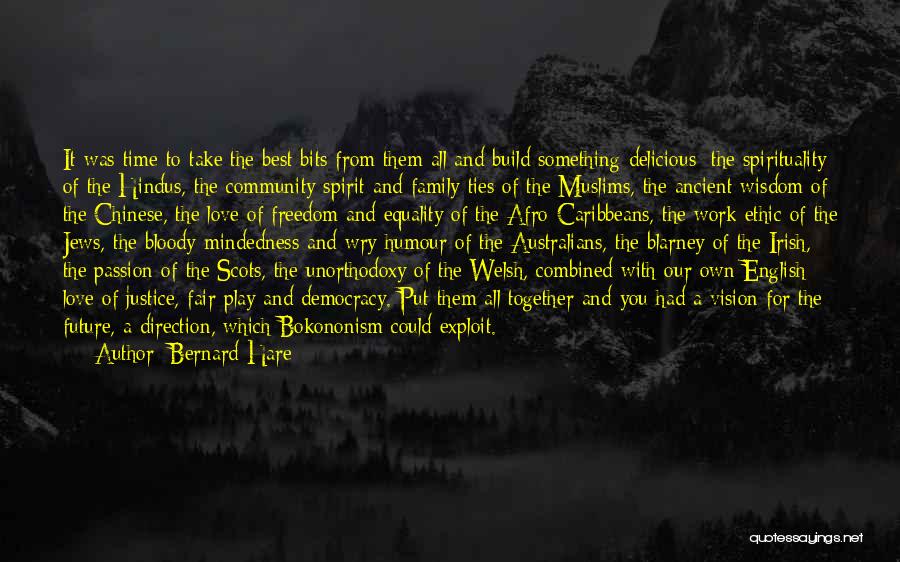Ancient Chinese Love Quotes & Sayings
Enjoy reading and share 3 famous quotes about Ancient Chinese Love with everyone.
Top Ancient Chinese Love Quotes

Our first kiss was there on the bridge in the woods. How do you describe a first kiss? It is like trying to hold water in your hands. There is an ancient Chinese proverb that compares kissing to drinking salted water. "You drink, and your thirst increases," it says. Time, I'm sure, passed by, but we remained unavailable for comment. — Kirstie Collins Brote

It was time to take the best bits from them all and build something delicious: the spirituality of the Hindus, the community spirit and family ties of the Muslims, the ancient wisdom of the Chinese, the love of freedom and equality of the Afro-Caribbeans, the work ethic of the Jews, the bloody-mindedness and wry humour of the Australians, the blarney of the Irish, the passion of the Scots, the unorthodoxy of the Welsh, combined with our own English love of justice, fair play and democracy. Put them all together and you had a vision for the future, a direction, which Bokononism could exploit. — Bernard Hare

When I lived in New York and went to Chinatown, I learned that these flavors and their meanings were actually a foundation of ancient Chinese medicine.
Salty translated to fear and the frantic energy that tries to compensate for or hide it.
Sweet was the first flavor we recognized from our mother's milk, and to which we turned when we were worried and unsure or depressed.
Sour usually meant anger and frustration.
Bitter signified matters of the heart, from simply feeling unloved to the almost overwhelming loss of a great love. Most spices, along with coffee and chocolate, had some bitterness in their flavor profile. Even sugar, when it cooked too long, turned bitter. But to me, spice was for grief, because it lingered longest. — Judith Fertig





